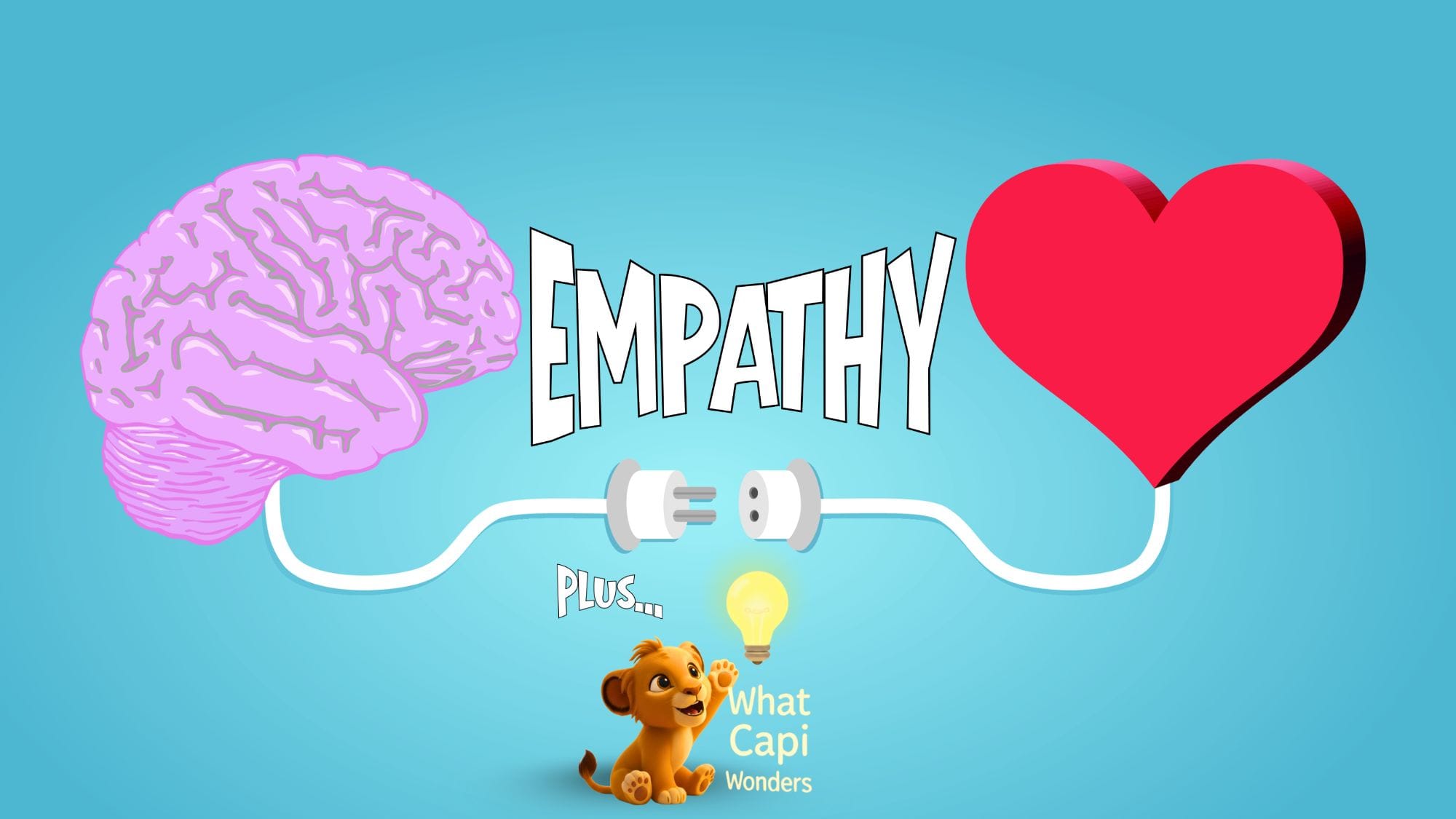There’s an old story about a chicken and a pig walking past a church one Sunday morning. From inside, they could hear the joyful sounds of singing and worship. The chicken turned to the pig and said, “We owe a lot to the people who care for us; they feed us, give us shelter, and keep us safe. We should do something nice for them.”
The pig replied, “That’s a good idea. What do you suggest?”
The chicken thought for a moment and said, “How about we make them a nice breakfast of bacon and eggs?”
The pig paused, looked at the chicken, and said, “That might sound good to you, but while yours would be a donation, mine would be a total commitment.”
When considering the difference between sympathy and empathy, your level of involvement is like this: Sympathy is the response you give to someone that expresses sorrow, grief, concern or pity. Empathy not only offers those sentiments but seeks to share them and feel them personally. Sympathy maintains a distance between the one suffering and the one who offers their advice or comfort while remaining detached from another’s pain or misfortune.
Empathy seeks to have a deeper connection with the one suffering, by sharing the other’s emotional circumstances. You can be sympathetic for someone without getting involved or agreeing or disagreeing with them. An empathetic person feels the suffering of the person in distress. Prepositions are not without significance here, feeling “for” and feeling “with” another, denote whether you seek to be detached or participate in another’s predicament. However, sympathy and empathy share a common foundation, they both begin with understanding.
What Capi Wonders…How do you know when...

you’re feeling “with” someone and not just “for” them?
Empathy testifies to your commitment to someone else’s feelings. It asks us not just to notice their pain, but to share in their experience, an idea captured in this widely circulated explanation: “Opinion is the lowest form of knowledge. It requires no understanding, no accountability. The highest form of knowledge is empathy, for it requires us to suspend our egos and live in another’s world.”
I’ve often heard empathy mischaracterized as “enabling self-destructive behavior.” People who lack compassion for the suffering of others view empathetic individuals as weak or even misguided. Yet the word compassion itself comes from the Latin cum passio, “to suffer with” which perfectly embodies the essence of empathy. Who would not want those entrusted with the mental, emotional, and physical well-being of others to possess these virtues? It brings to mind the saying often shared between patients and their doctors: “I don’t care how much you know until I know how much you care.”
When others seek to understand us, to literally “stand under” to support us we feel a sense of relief knowing that someone feels us, gets us and is willing to stand with us. There are few experiences more reassuring and comforting than the knowledge that you not alone in your suffering. You could say that the nonexistence of empathy imperils society at large, for it threatens people who are marginalized through poverty, neglect, and injustice. Apathy weakens the very notion of the golden rule, “do unto others as you would have them do unto you.” A mandate that exists in some form in every religion on earth.
Humanity – Empathy = Evil
Following World War II, the Nuremberg Trials took place seeking justice for the war crimes perpetrated by the Nazis. An American psychologist by the name of G.M. Gilbert was given the assignment to interview each of the prisoners. Over the course of 11 months, he interrogated every one of those incarcerated. Because of his fluency in German the prisoners developed a bond with him, giving him their trust and confidence. He later wrote in his book, “Nuremberg Diary” this insightful comment:
“I told you once that I was searching for the nature of evil. I think of I have come close to defining it: a lack of empathy. It is the one characteristic that connects all the defendants. A genuine incapacity to feel with their fellow man. Evil, I think, is the absence of empathy.”
Any act, whether intentional or not, that overlooks the pain of those who feel isolated, unwanted, or excluded weakens the very foundation of a society built for the common good. When we lose our connection to one another, we condemn ourselves to a world that grows smaller and more selfish, one where the ego overshadows feeling with another. To heal this, we must nurture a spirit that reaches beyond ourselves, a shared attitude of compassion that seeks out and embraces those who are suffering.
Fewer Opinions. More Empathy. A Better World
Developing a spirit of empathy will inevitably impact our world in a positive manner. Throughout history those civilizations that promoted the care and concern of others, be they be widows, orphans, the poor, the weak, the sick and disabled were the ones that thrived. Theologically we have heard these words in the message and mission of Jesus Christ. He mandated us to love our neighbor as ourselves, a pronouncement that we have always known but sometimes fail to perform.
For those who embrace their Christian faith we have been taught that when the Son of God became man, He took upon Himself our sins. To be so personally and intimately connected to us is a profound act of empathy. He did not merely sympathize with our human condition, He demonstrated His willingness to become like us, with all our human frailties of life, He was like us in all things except sin. For our sakes He humbled Himself and became one with us, yes even to the extent of feeling the emotions of human suffering. I can think of no better epitome of empathy than Jesus Christ.
When we practice empathy toward others, regardless of their condition or situation, without judgment or hesitation, we are not only listening but connecting. Each moment of understanding strengthens our connections to others and helps create a society where everyone can flourish. In this way we reflect the example of Christ.
Capi is Wondering…How can I become more empathetic?
5 Steps Toward Empathy
1. Begin with a Prayer for Empathy
A Prayer for Empathy
Lord, open my heart to see through another’s eyes.
Help me listen without judgment and love without condition.
Let my words bring comfort, and my silence bring peace.
Teach me to feel what others feel,
so that compassion may guide all I do.
Amen.
2. Listen to understand, not to reply.
Set aside the urge to fix or respond. Hear the emotions behind the words.
3. Suspend judgment.
Let go of assumptions and labels and make room for their truth.
4. Imagine their experience.
Visualize how this feels for them, beyond your own perspective.
5. Acknowledge their feelings.
Recognize the person’s pain and honor their humanity.
Explore More:
